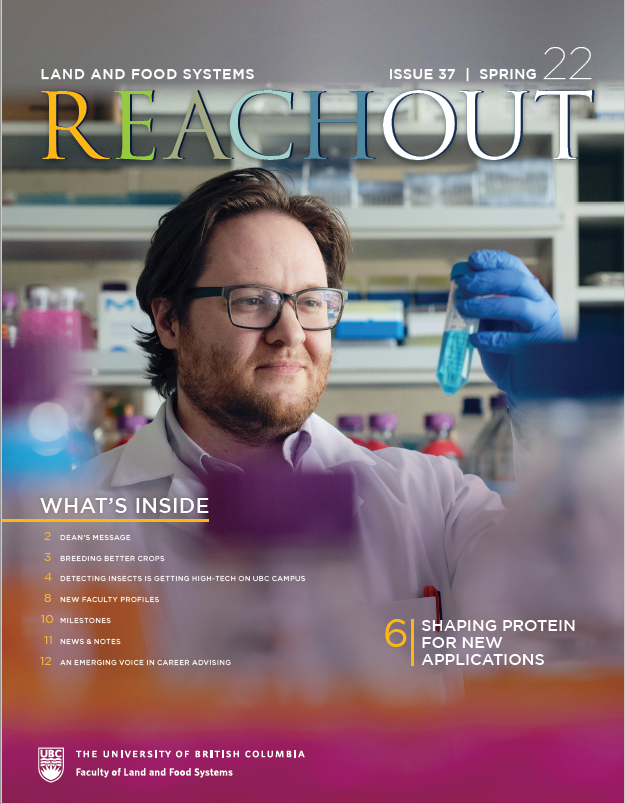Expanding the Innovation Network in Dairy
In her new position with BC Dairy Association, Emma Strazhnik (BSc Applied Animal Biology Hon. ’13) is dedicated to supporting dairy producers improve their climate footprint.
Strazhnik is Stakeholder and Innovation Manager, a role that BC Dairy created last autumn to focus on research innovation and bringing producers into the conversation as the dairy sector explores ways to address climate and sustainability on-farm.

“My main passion will always be animal welfare, but now I’m focused on the welfare of the land and the whole farm system,” says Strazhnik. “In this new role I’m self-driven and I get breathing space to build networks and think strategically and creatively.”
Strazhnik, who has worked at BC Dairy since 2018, shifted her focus from animal welfare to learning about new topics such as soil, manure and environmental regulations. She’s made many connections so far, and now she can prioritize growing a network of support to seek out opportunities that will benefit B.C. dairy farms and the environment.
“I need to know everything that’s going on so any research in progress includes a producer perspective to increase the potential for adoption on the ground, and to facilitate producer participation in initiatives that will benefit their practices and industry as a whole.”
She’s been collaborating with dairy colleagues across Western Canada, most closely with Alberta Milk, and working with dairy researchers, particularly Industrial Research Chairs from the Natural Sciences and Engineering Research Council of Canada (NSERC).
BC Dairy is a not-for-profit association representing close to 500 dairy farms. The organization works on behalf of local farmers to grow the market for dairy products and to support profitable, environmentally and socially responsible dairy farm businesses.
Last fall, Canada’s national dairy organization, Dairy Farmers of Canada (DFC) joined international dairy organizations in supporting Pathways to Dairy Net Zero, a commitment towards net-zero GHG emissions, and in February 2022, it announced a commitment that Canada’s dairy industry would be net zero by 2050.
Associations such as BC Dairy are actively exploring ways to achieve this – through soil and nutrient beneficial management practices, emissions reductions, GHG removal offsets, carbon sequestration and qualitative targets related to soil and land, water, biodiversity, waste, and energy.
After completing a course-based MSc degree at the University of Glasgow, she returned to UBC to gain additional research experience at the Dairy Education and Research Centre in Agassiz, as she was considering a career in academia.
However, after working in Agassiz for 1.5 years, Strazhnik realized that academia wasn’t the right fit.
“I realized that I had to be working in industry to make the impact that I wanted to make.”
She didn’t grow up on a farm but has always loved animals, big and small. Currently, Strazhnik has her first foster animal – a three-legged dog from Afghanistan, in addition to her own dog.
“I’ve always been drawn to animals. Dairy cattle are so responsive to humans and I love their personalities and the relationships that are possible.”
Tagged with: 2022, Alumni, Applied Animal Biology, Applied Biology
